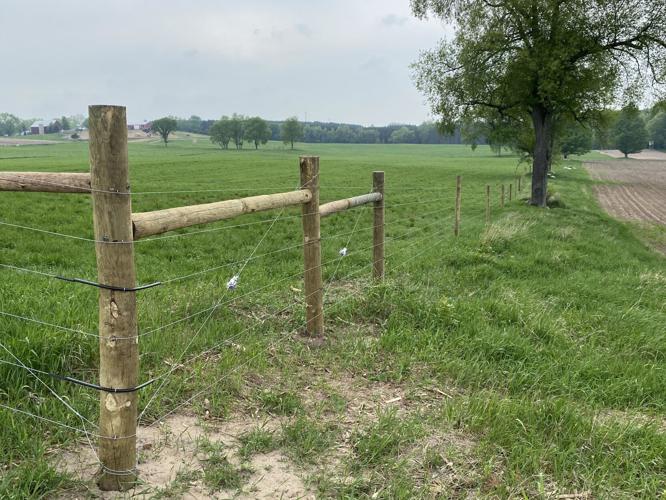Michigan farmers and private forest owners who submit applications by Nov. 17 will have an opportunity to receive fiscal year 2024 conservation financial assistance from the U.S. Department of Agriculture (USDA).
The USDA Natural Resources Conservation Service (NRCS) announced funding availability for its Environmental Quality Incentives Program (EQIP). EQIP funding can be utilized to address existing or potential natural resource problems on your farm or forests.
The funding is available to eligible agricultural producers and non-industrial private forest owners in Michigan. To be eligible for USDA programs the applicant must be in compliance with the Highly Erodible Land and Wetland Conservation provisions of the Farmbill. They must also meet the Adjusted Gross Income limitations, which is currently a $900,000 yearly average. If the applicant is a Corporation, Limited Liability Company, or other type of entity, then each member must certify their compliance with these rules. Payments to entities will be reduced by the percent share that any non-compliant individuals have in that entity.
Financial assistance is available for implementing designated conservation practices such as pollinator plantings with native or introduced flowering plants, windbreaks, cover crops, crop residue and tillage management and many others. Interested producers should contact their local USDA Service Center or visit the Michigan NRCS website to find out what activities would benefit their operation and our natural resources. Applications are ranked and selected for funding on a competitive basis.
Conservation Planning Activities are operation-specific conservation plans developed by a USDA-certified Technical Service Provider (TSP). To receive funding for a conservation planning activity, the producer must have their application selected for funding before hiring a provider and beginning the planning process. Examples of conservation planning activities eligible for USDA funding include; nutrient management, forest management, grazing management, pollinator habitat, drainage water management and organic transition.
To be eligible for energy conservation practices, you must have an approved energy audit or a TSP prepared Energy Management Plan. The Energy Management Plan is another type of Conservation Activity Plan that can be funded with an Environmental Quality Incentives Program contract. Farmers interested in receiving financial assistance for agricultural waste storage or treatment practices will need a TSP prepared Comprehensive Nutrient Management Plan. Forestland owners that wish to reduce their property taxes may qualify for property tax relief under the state Qualified Forest Property Tax Program. A requirement of that program is that you have a forest management plan. Contact your local conservation district forester for questions specific to the tax program.
Conservation activities receiving financial assistance must be part of an agricultural or forest operation’s conservation plan. Successful applicants enter into a contract with NRCS to implement conservation activities and are reimbursed for a portion of the cost.
NRCS provides higher levels of financial assistance for beginning farmers and historically underserved producers. Applications are accepted on a continuous basis, producers and forest owners are encouraged to submit applications at any time. More information about conservation financial assistance through the Environmental Quality Incentives Program is available at local NRCS offices and online at https://www.nrcs.usda.gov/programs-initiatives/eqip-environmental-quality-incentives .
Greg White is the District Conservationist for the USDA’s Natural Resources Conservation Service in Osceola & Lake Counties. For more information on contact Greg by phone at (231) 465-8007, by email at greg.white@mi.usda.gov, or stop by the Reed City Field Office at 138 W. Upton Ave, Suite 2, Reed City, MI 49677. The USDA is an Equal Opportunity Provider, Employer & Lender.




















Commented
Sorry, there are no recent results for popular commented articles.